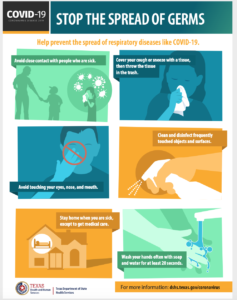Virginia is on the cusp of creating the nation’s first pandemic workplace safety requirements for employers, a standard that many in the occupational safety and health community expect could be a model for other state-operated Occupational Safety and Health Administrations to follow.
With no signs that Fed-OSHA is looking to develop similar regulations, some state OSHAs have been discussing creating safety rules specifically covering employer responsibilities for protecting their workers during a pandemic, such as the nation is in now with COVID-19.
Virginia is pressing forward following a 9-3 vote by the state’s health and safety board to create pandemic workplace safety rules that they will work on immediately.
The governor’s office said that the state had to forge ahead developing the new standard because the lack of enforcement of COVID-19 workplace safety complaints by Fed-OSHA.
The draft standard requires employers to develop policies for workers dealing with COVID-19-like symptoms, while barring staff who are suspected of having contracted the virus from coming to work.
Another part of the rules would require employers to notify their employees that they may have been exposed to an infected co-worker within 24 hours of learning that a worker has tested positive for COVID-19.
These regulations and standards must address personal protective equipment, respiratory protective equipment, sanitation, access to employee exposure and medical records, and hazard communication.
The draft standard can also serve as a guide for employers to protect their own workers regardless of where they are located. It would require that employers:
 Enforce social distancing – The employer shall require that 6 feet of space is maintained between workers, and between workers and customers, by using one or more of the following measures:
Enforce social distancing – The employer shall require that 6 feet of space is maintained between workers, and between workers and customers, by using one or more of the following measures:
- Implementing flexible worksites (e.g., teleworking);
- Implementing flexible work hours (e.g., staggered shifts);
- Increasing physical space between workers at the worksite to 6 feet;
- Increasing physical space between workers and customers (e.g., partitions, and limits to the number of customers at one time);
- Implementing flexible meeting and travel options (e.g., postponing non-essential meetings or events);
- Delivering services remotely (e.g., by phone, video or web);
- Delivering products through curbside pick-up or delivery; and/or
- Re-configuring spaces where workers congregate, including lunch and break rooms, locker rooms and time clocks.
Provide face masks and shields – All workers shall be provided (free of charge) cotton face masks (double-layer cotton) by their employer. Face shields shall also be made available to workers.
Provide hand sanitizers, hand washing facilities, gloves – Employers must provide hand sanitizers that are readily available in multiple locations in the workplace. Workers must have the ability to wash their hands with soap and water regularly.
Gloves shall be provided by employers to workers who request them.
Conduct regular disinfection – Employers must clean and disinfect regularly all frequently touched surfaces in the workplace, such as workstations, touchscreens, telephones, handrails and doorknobs.
Increase ventilation rates – Employers must increase the percentage of outdoor air that circulates in the system.
Notify workers, maintain confidentiality – If an employee is confirmed to have COVID-19 infection, the employer must inform fellow workers of their possible exposure to COVID-19 in the workplace while keeping the infected individual’s identity confidential, as required by the Americans with Disabilities Act.










